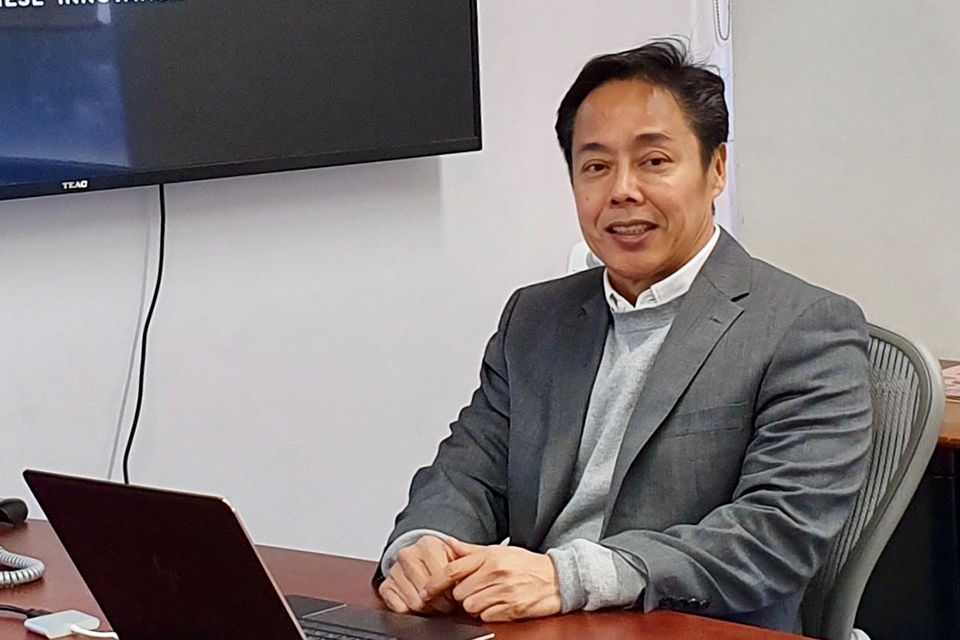Clive Chia is a Singaporean executive and CEO of TEAC Australia.
Fluent in English, Mandarin and various Chinese dialects such as Teochew, Hokkien and Cantonese, Clive combines cultural intelligence, deep regional experience and technological expertise to forge enduring business partnerships.
Hard working roots in Singapore
Clive was born and raised in Singapore by first-generation Chinese immigrants.
His father migrated from Guangdong province in southern China, and his mother's family settled in Johor, Malaysia, during World War II.
'We saw the country getting built from scratch and we had nothing to trade,' Clive reflects.
'So, we learnt that hard work, learning different languages and valuing education was the only way to succeed.'
Growing up amid Singapore's dramatic transformation from a resource-poor backwater to a first-world economy was inspiring. The experience also ingrained in him discipline, honesty and a lifelong appreciation for cultural diversity.
A leap of faith to Newcastle
After completing his diploma at Singapore Polytechnic, Clive set his sights overseas.
Like many budding international students, he weighed his options between the US, UK and Australia. He eventually chose Newcastle for its affordability, open spaces and welcoming weather.
Touching down at Sydney Airport and boarding the bus to Newcastle, he was struck by the flat, dark landscape and low-rise houses - a far cry from Singapore's high-density bustle.
At the University of Newcastle, the rigorous curriculum honed Clive's analytical thinking.
'The lecturers taught me to be structured in my approach and to think logically,' he notes.
Clive also worked on his English-language skills, which he instinctively knew would prepare him for future cross-cultural roles.
Clive returned to Singapore after graduation and brought with him his future wife, who he met at university.
His corporate career began in research and development. Yet his true passion lay in sales and marketing. Throughout his career, Clive held executive positions at Hewlett-Packard, Apple, Motorola, Lexmark, Samsung and LG in Singapore.
Using language skills to solve problems
At Lexmark Asia Pacific, Clive led trade and marketing development across 13 markets, standardising in-store activations and partner training.
One standout memory was saving an important deal through language.
When a major partner threatened to defect, Clive's Teochew-dialect skills salvaged the deal:
'We discovered our parents came from the same village in China,' he explains. 'Speaking our dialect built instant trust. It reminded me that success in Asia is as much about human connection as it is about commercial strategy.'

Clive Chia has used his language skills and cultural understanding to drive trade and marketing across multiple Southeast Asian markets.
Leading TEAC Australia: A CEO's mission
In a full circle moment, TEAC Australia approached Clive to be their CEO. He embraced the challenge of restructuring a smaller, tech devices brand.
'I wanted a role where I ran the entire business and could bring together all I've learned over three decades,' he says.
He also got to reunite with his 3 children, who were all studying in Australia.
While Australia remains his primary focus, he still supports trade into Brunei, Cambodia and Indonesia, honing his skills in emerging Southeast Asian markets.
Clive was ready to live in Australia, his cultural agility in place courtesy of 30 years living in the region with his Australian wife.
The Southeast Asia imperative
Clive emphasises the potential of Southeast Asia's burgeoning middle class, a market he believes is approximately 30-35% of nearly 700 million people.
'Australia is well positioned with premium products and services and a reputation for quality, but we must connect culturally as well as economically,' he says.
'Southeast Asian countries have high context cultures, and you have to truly understand each market's history, politics and social norms.'
He urges Australian companies to harness their Southeast Asian diaspora to gain valuable market insights, language skills and authentic engagement. He believes they are an untapped resource and a 'strategic national asset'.
'Southeast Asia is one of the fastest-growing global regions, with the regional population expected to reach 770 million by 2030,' says Helen Oh, Austrade's Trade Commissioner in Singapore.
'It will be great to see more Australian people and businesses leverage Singapore's unique function as the APAC business hub and bridge to the rest of Southeast Asia.'
A vision for mutual regional growth
Although he has developed a high level of cultural fluency across the region, Clive's only regret is not exploring cultures more deeply during business trips.
Today, he balances strategy with curiosity, exploring local cuisines, histories and customs wherever he goes.
He believes that with the right attitude, Australia's future in the region is positive.
'Australia has a unique window in Southeast Asia,' he says.
'By showing up with curiosity, humility, professionalism and cultural sensitivity, we can unlock immense trade potential and grow together.'






